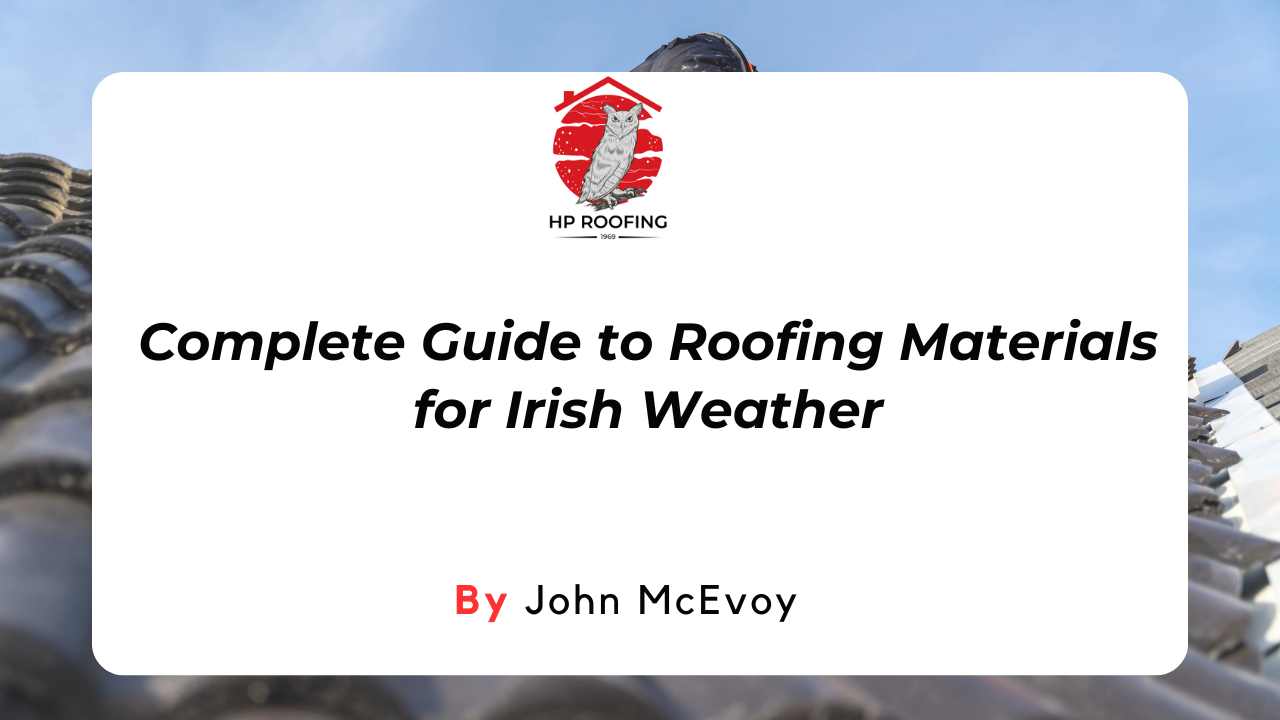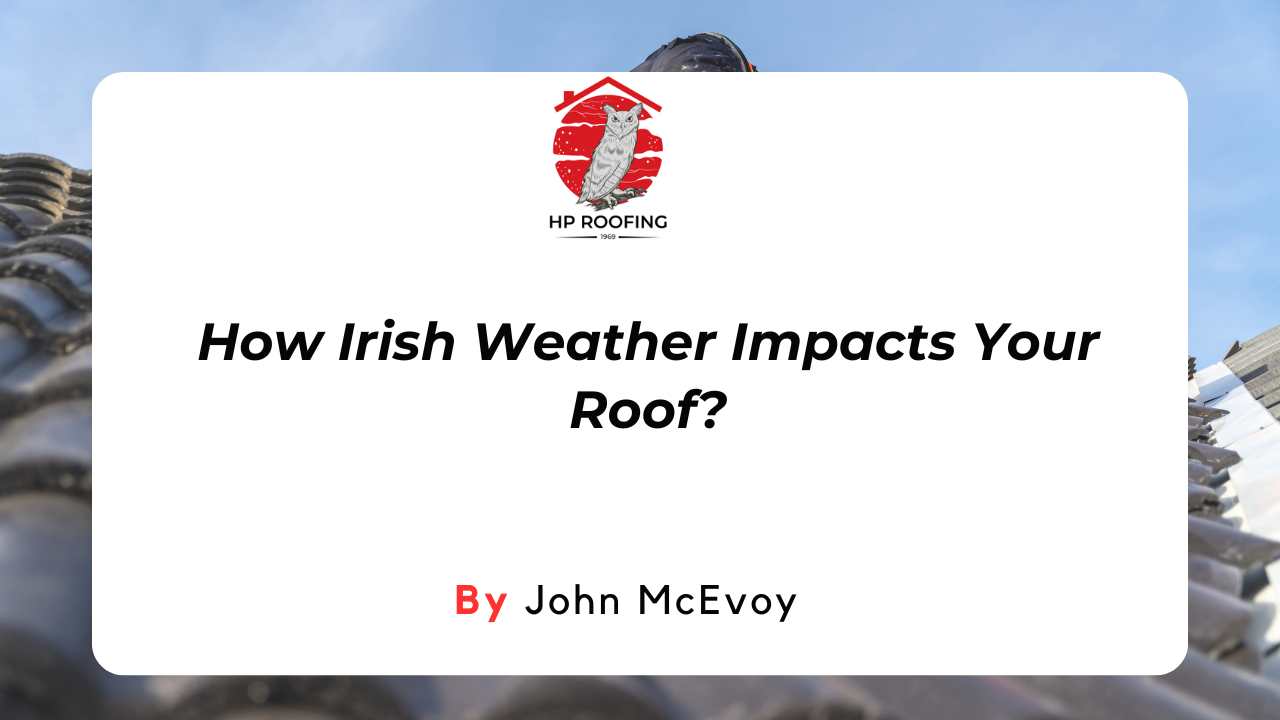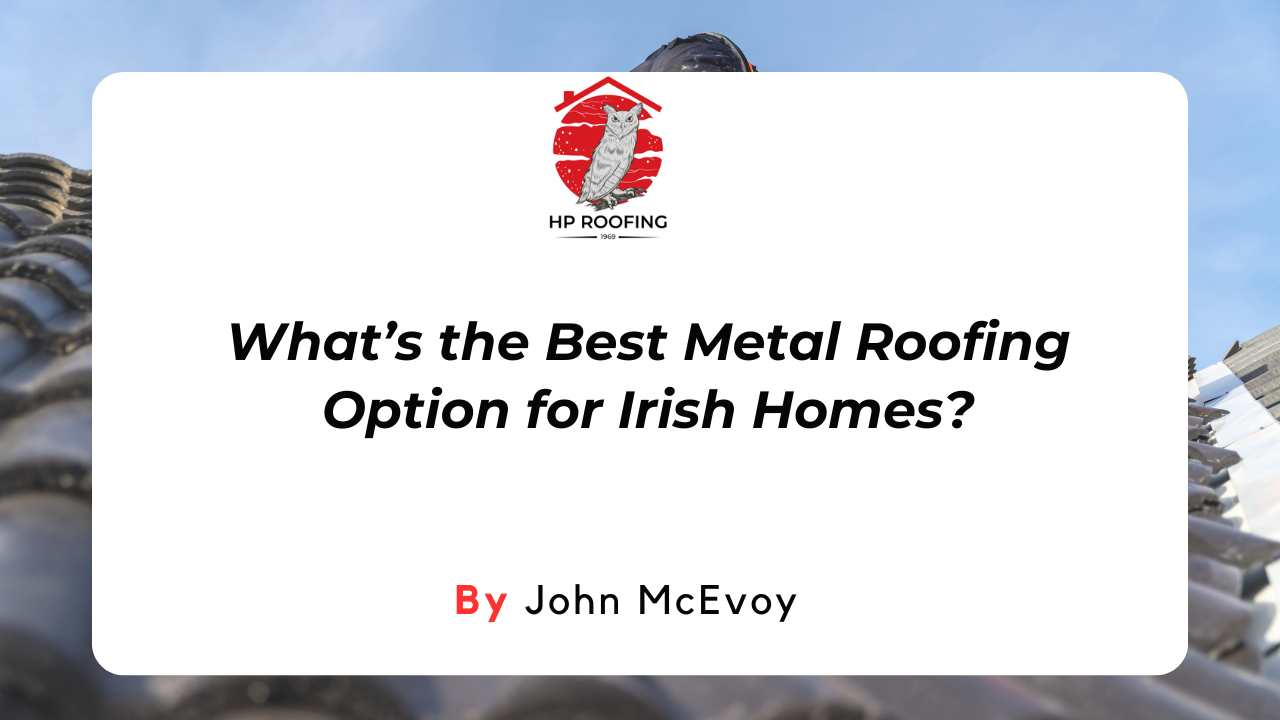Are you considering a flat roof extension for your home in Ireland? HP Roofing, a leading roofing company, has compiled this comprehensive guide to help you make an informed decision.
We'll cover everything you need to know about these extensions, from the benefits and types to the materials and costs. We'll also mention how HP Roofing's expert services can help you with your project. By the time you finish reading, you'll have a complete understanding of flat roof expansions and can decide if it's the right choice for your home.
Why Choose a Flat Roof Extension?
There are many advantages to choosing this type of extension for your home. Some of these benefits include:
Cost-effective
These additions are generally less expensive to construct than pitched roof extensions. This is because they require less material and labour, saving you money on construction costs.
Space-efficient
These roofs offer additional usable space on top of your extension, which can be utilised for various purposes, such as rooftop gardens, solar panels, or even outdoor living areas.
Modern aesthetic
The clean lines and minimalist look of a single-level roof addition can give your home a contemporary, stylish appearance that complements modern architecture and design.
Easy maintenance
With fewer angles and slopes, these extensions are easier to maintain and clean, making them a practical choice for homeowners.
Types of Single-level Roof Additions
There are several types of these additions, each with its own unique features and benefits. Some of the most popular options include
Single-storey extension
A single-storey addition is ideal for homeowners looking to add extra living space to their homes, such as a kitchen or living room. This cost-effective extension can seamlessly blend with your existing home's architecture.
Double-storey extension
A double-storey addition adds two levels of additional living space, making it perfect for larger families or those who need more room for a home office or guest accommodations. This type of extension is more expensive than a single-storey extension but offers more flexibility in terms of design and layout.
Wrap-around extension
A wrap-around addition combines a rear and side extension, effectively wrapping around your home to create a large, open-plan living area. This type of extension maximises available space and can transform your home's appearance and functionality.
Flat Roof Materials and Their Advantages
There are several materials available for single-level roof additions. Here, we'll discuss the most popular options and their advantages:
EPDM Rubber
EPDM rubber is a durable and low-maintenance material, making it a popular choice for flat roof expansions. It is resistant to UV rays, temperature fluctuations, and weathering, which helps prolong its lifespan.
PVC Roofing
PVC roofing is lightweight, strong, and resistant to chemicals and fire. It also boasts excellent weather resistance and a long lifespan, making it a suitable option for horizontal roof extensions.
TPO Roofing
TPO (Thermoplastic Olefin) roofing is an energy-efficient material that reflects UV rays, reducing cooling costs during the summer months. It is also resistant to punctures, tears, and algae growth, making it ideal for flat-topped roof extensions.
Modified Bitumen
Modified bitumen roofing is a durable and weather-resistant material. It offers excellent protection against water infiltration and can withstand temperature fluctuations, making it a reliable option for single-storey roof extensions.
Flat Roof Construction Techniques
There are several flat roof construction techniques, each with its unique benefits:
Warm Roof Construction
In warm roof construction, insulation is placed above the roof structure, keeping it at a similar temperature to the building's interior. This method prevents condensation issues and provides better thermal efficiency.
Cold Roof Construction
In cold roof construction, insulation is placed below the roof structure, allowing for a ventilated airspace. This method is generally more affordable but less energy-efficient than warm roof construction.
Inverted Roof Construction
Inverted roof construction involves placing insulation above the waterproofing membrane, protecting it from temperature fluctuations and UV damage. This method prolongs the membrane's lifespan and offers excellent thermal performance.
Design Considerations for Flat Roof Expansions
When planning a single-level roof addition, there are some essential factors to consider, such as:
The size and shape of the addition
The size and shape of your extension will depend on your available space, budget and personal preferences. You can choose from various options, such as square, rectangular, L-shaped or T-shaped extensions. You can also combine different shapes to create a unique design that suits your needs.
The location of the addition
The location of your single-level roof addition will affect your home's appearance, functionality and privacy. Depending on your planning permission and building regulations requirements, you can build an extension on either the side or rear of your property. You should also consider how the addition will relate to your existing windows, doors and garden.
The fall of the roof
The fall of the roof is the angle at which the roof slopes down to allow water to drain off. Getting the fall right on an extension is essential, as it will prevent problems such as ponding water, leaks and structural damage. The recommended minimum fall for a single-level roof addition is 1:40 (or 1.5 degrees), but this may vary depending on your cover type.
The insulation of the roof
The roof's insulation is the material that prevents heat loss or gains through the roof. Insulating your roof addition properly is crucial, as it will improve your home's energy efficiency, comfort and soundproofing.
There are three main types of insulation for single-level roofs: cold roof insulation (where the insulation is placed below the deck), warm roof insulation (where the insulation is placed above the deck) and inverted roof insulation (where the insulation is placed above the waterproof membrane). The best option for your single-level roof addition will depend on your climate, budget and design preferences.
Flat Roof Extension Costs
The cost of a flat roof extension in Ireland can vary significantly based on factors such as the size of the extension, the materials used, and the complexity of the design. On average, you can expect to pay between €1,200 and €1,800 per square meter for a flat roof extension.
HP Roofing's Expert Services
When adding more space to your home, HP Roofing is your go-to roofing company in Ireland. Our team of experienced professionals specialises in constructing high-quality, durable single-level roof additions that meet your specific needs and requirements. From selecting suitable materials and design to managing the construction process, we're with you every step of the way to ensure a seamless and stress-free experience.
Why Choose HP Roofing?
Here are just a few reasons to trust HP Roofing with your single-level roof addition project:
Expertise
Our team of skilled professionals has extensive experience in the roofing industry, ensuring your addition is constructed to the highest standards.
Quality Materials
We use only the best materials for your project, ensuring it's built to last and withstand the Irish weather conditions.
Customisation
We work closely with you to create a bespoke addition that meets your needs and requirements, from design and layout to materials and finishes.
Competitive Pricing
At HP Roofing, we offer competitive service pricing without compromising quality.
Customer Satisfaction
We pride ourselves on delivering exceptional customer service and satisfaction, ensuring you're happy with your addition from start to finish.
Contact HP Roofing for Your Roof Extensions
If you're ready to embark on a flat roof extension project in Ireland, HP Roofing is here to help. Our team of experts will guide you through every step of the process, from design and material selection to construction and maintenance. Contact us today for a free consultation, and let us bring your dream single-level roof addition to life.
















